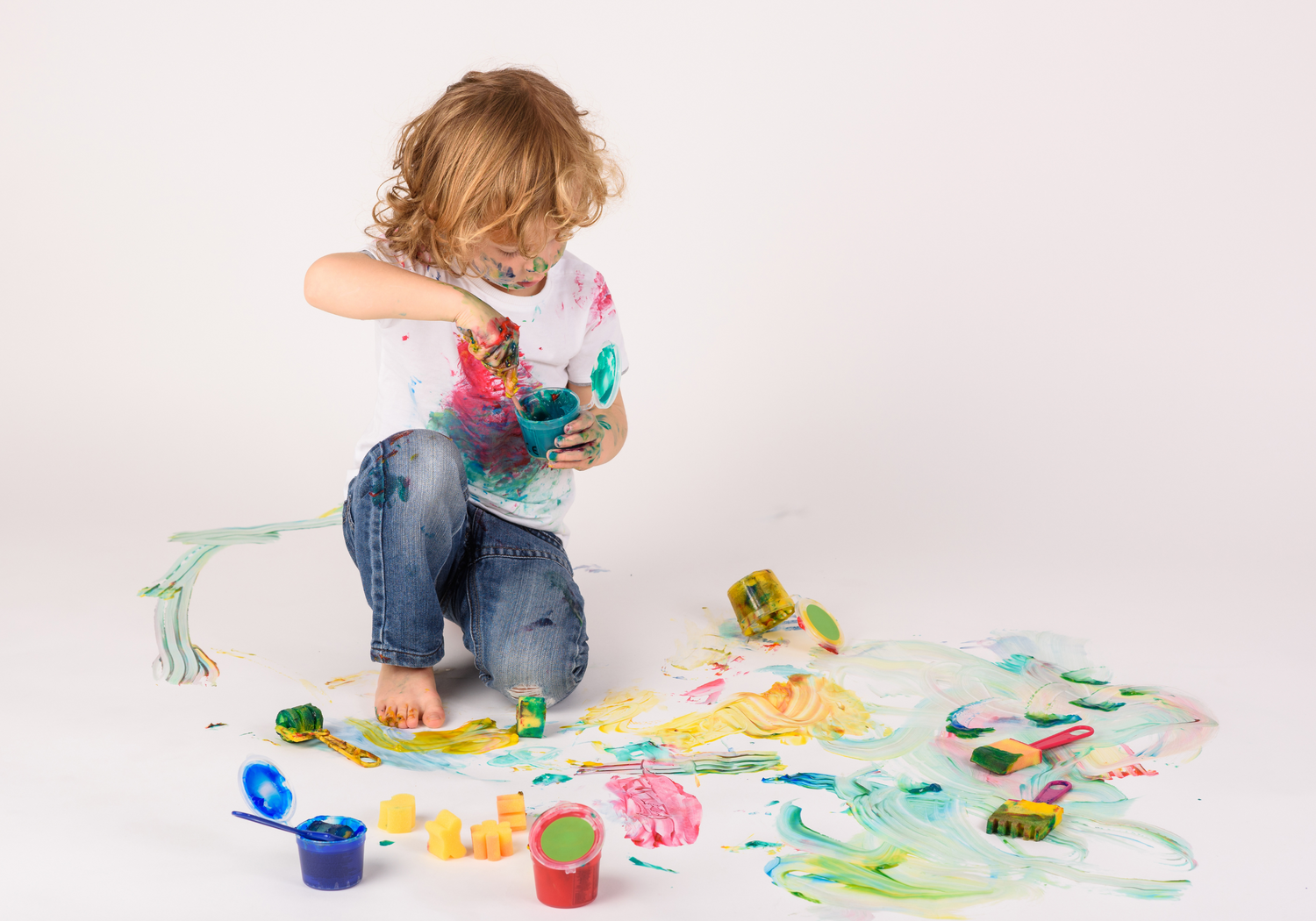Author: Aliyah Sutton, M.Ed
Ask any passionate early childhood educator, and they will tell you that messy play is an essential part of childhood. While it might seem like nothing more than chaos, messy play benefits children in ways you might never have imagined. Hands-on activities like - Squishing play dough, splashing paint and running their tiny fingers through water beads is a fun way to spark curiosity and growth. It fosters a love of learning, problem-solving, and nurtures cognitive and motor skills prepping them for school and beyond.
The Magic of Embracing Messy Play
Messy play engages the child's senses and nurtures their love for exploring, thereby tapping into developmental milestones. Yet, all too often, we shy away from engaging in these messy activities, not realizing how impactful these activities are. It is important to look beyond the mess, and the extra laundry, because the truth is, messy play at home and at nursery is a vital part of developing the foundational academic skills your child will rely on throughout their education. Nothing beats hands-on activities for children!
How messy play can support your child’s growth
1. Problem Solving
A key benefit of messy play is that it allows your child to experiment and make decisions on their own. There’s no strict outcome to follow, which gives them the freedom to test ideas, make mistakes, and figure things out for themselves. This is where their problem-solving skills really begin to blossom. And most importantly, doing the activity while having fun. Take something simple like building castles with moon sand. A child starts with a vision or plan and then needs to work out how to make it come to life. They’ll start figuring out what works and what doesn’t—how to balance the sand, what tools to use, etc. Even if their first attempts seem unstructured, your child is busy exploring materials and how they interact with one another. This helps them make cause-and-effect connections and test the limits of their knowledge. As they build and sculpt, they will encounter surprises or problems, which become key learning opportunities and moments where they are being cognitively stretched. Play like this engages children, motivates them to find new and innovative solutions, and builds resilience and independence—all skills that are very important for school and life beyond the classroom.
2. Early Literacy Skills
Vocabulary development and early literacy are other key reasons to get your hands messy! These opportunities engage multiple senses and create a natural setting where children want to narrate their experiences. The way these play opportunities captivate attention encourages children to use descriptive language, helping them learn new words and phrases as they talk about textures, colours, and shapes. Imagine dipping a finger into red paint, smearing it on the hand – you can see it and feel it. Now mix in some blue – imagine the wonder as you make a new colour – purple. There is so much to talk about! For a more structured task, consider using shaving foam, slime, or trays filled with rice to trace letter shapes or hunt for small objects that begin with a certain sound hidden in the tray. Because messy play is tactile, it supports children in not only building and maintaining focus but also allows them to form stronger connections between vocabulary, tapping into their speech development, as well as written symbols and their meanings.
3. Early Math Skills
The hands-on nature of messy play allows children to engage with important mathematical concepts in a fun and meaningful way. Together, you can develop skills like counting, measurement, sorting, and classification. Activities like scooping rice, pouring water, or filling containers with sand provide children with the chance to see mathematics in practical and real-world scenarios. Together, practice counting and watch as they begin to understand quantities. Ask questions like, “I wonder how many scoops it will take to fill your cup?” and set them off with the busy task of counting how many scoops of rice it takes. As children play with materials like playdough or containers filled with items like rice or pasta, they can sort them by size, colour, or texture, building skills like categorizing and grouping. Together, create patterns with colored playdough or colored pasta and then discuss how to continue the sequence. There are countless ways getting a little messy grows a mathematical mind!
4. Motor Skills and Coordination
Fine Motor Skills are essential for tasks such as writing, drawing, and using scissors—all important parts of early learning. When children engage in activities like rolling playdough, scooping sand, or finger painting, they strengthen the muscles in their hands and fingers. Messy play, like jumping in puddles, splashing water, or digging in sand, encourages large movements that strengthen larger muscles and build coordination. Building muscle strength supports your child’s ability to engage in physical activities and also allows them to have the stamina to hold positions such as sitting still. Hand-Eye Coordination can be developed through activities such as pouring water from one container to another or using a paintbrush. Giving your child the muscle strength and coordination will allow them to engage in more structured tasks in sports and classroom settings, making it a fantastic way to nurture their holistic development.

Bonding Through Play
As parents, you play the most important role in shaping your child and preparing them for their future challenges. Embracing messy play at home provides fun and engaging experiences that create moments of deep learning. These activities help your child become more confident, independent, and curious—all while having fun! When we play with our children, especially during their messy or imaginative play, we're not just having fun — we're strengthening our bond with them. Whether it's digging in the sand or painting together, we're entering their world and showing them that their feelings and ideas are important. Letting children lead during playtime can make them feel proud and respected, knowing we genuinely want to see things from their point of view. For us parents, joining in their silly or creative games helps us understand who they are and creates a closer, more caring relationship. Even though it takes a little extra work, it is worth it! Embrace the mess, and see the joy and wonder in your child’s face as they explore and develop a passion for learning.



